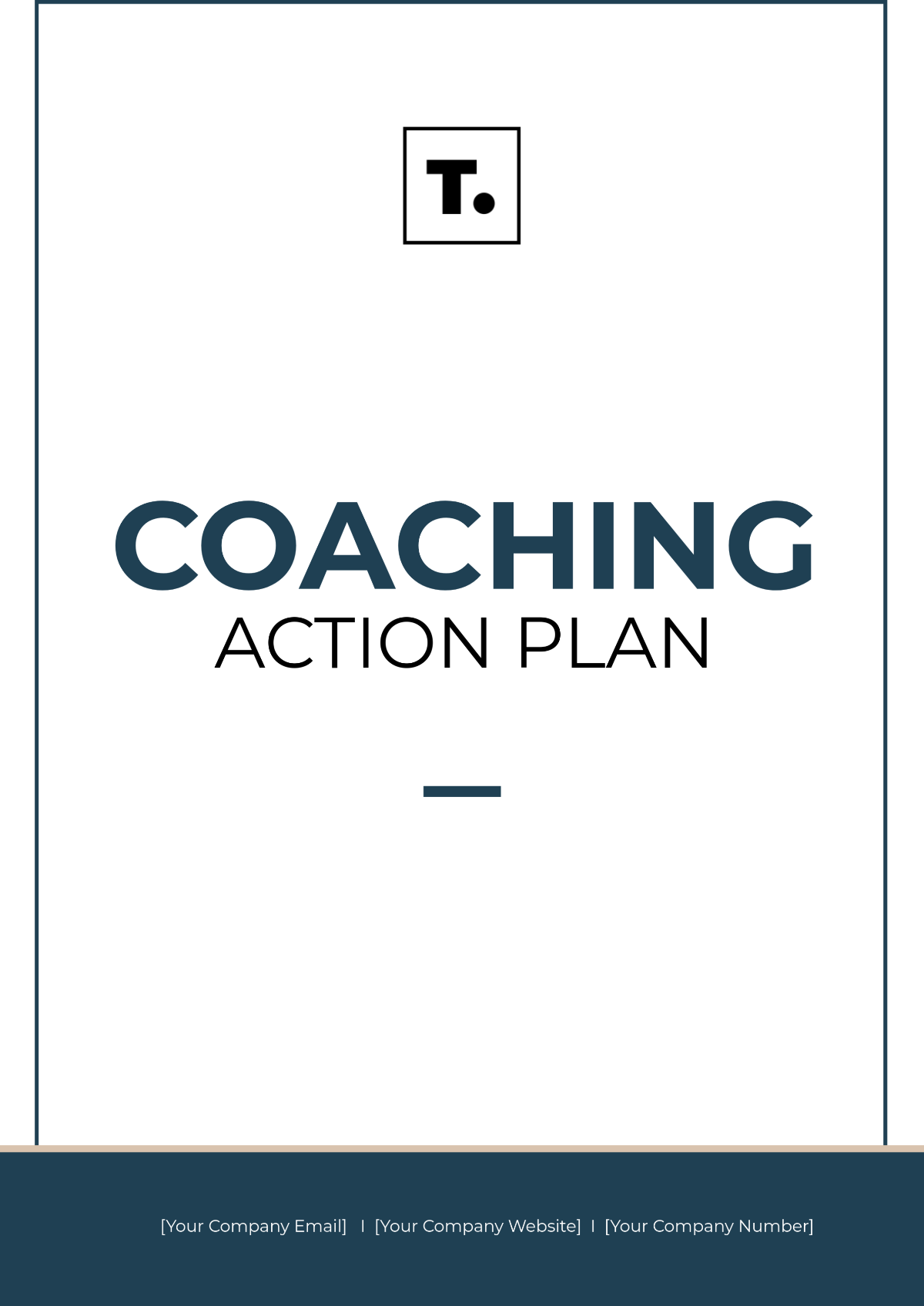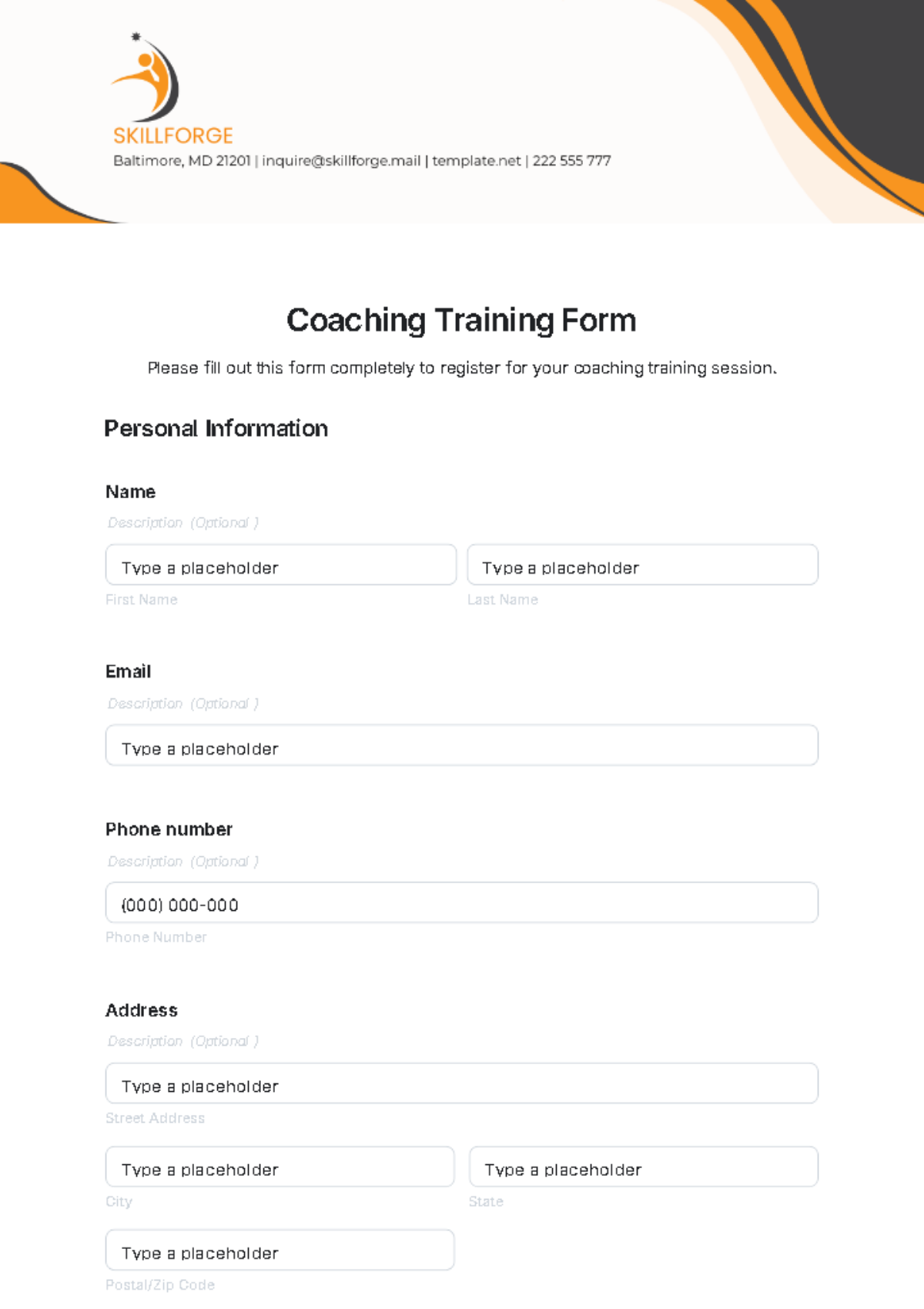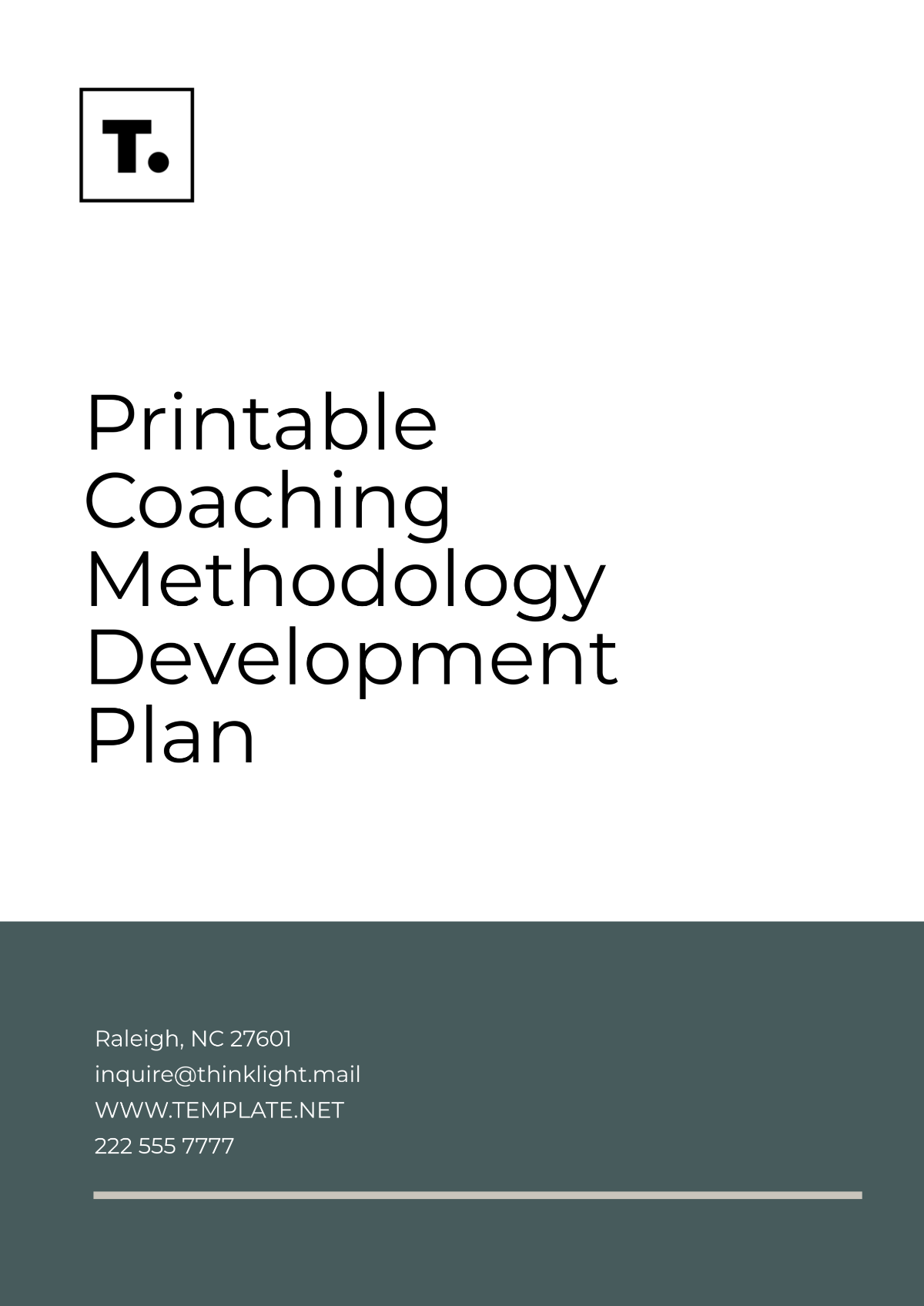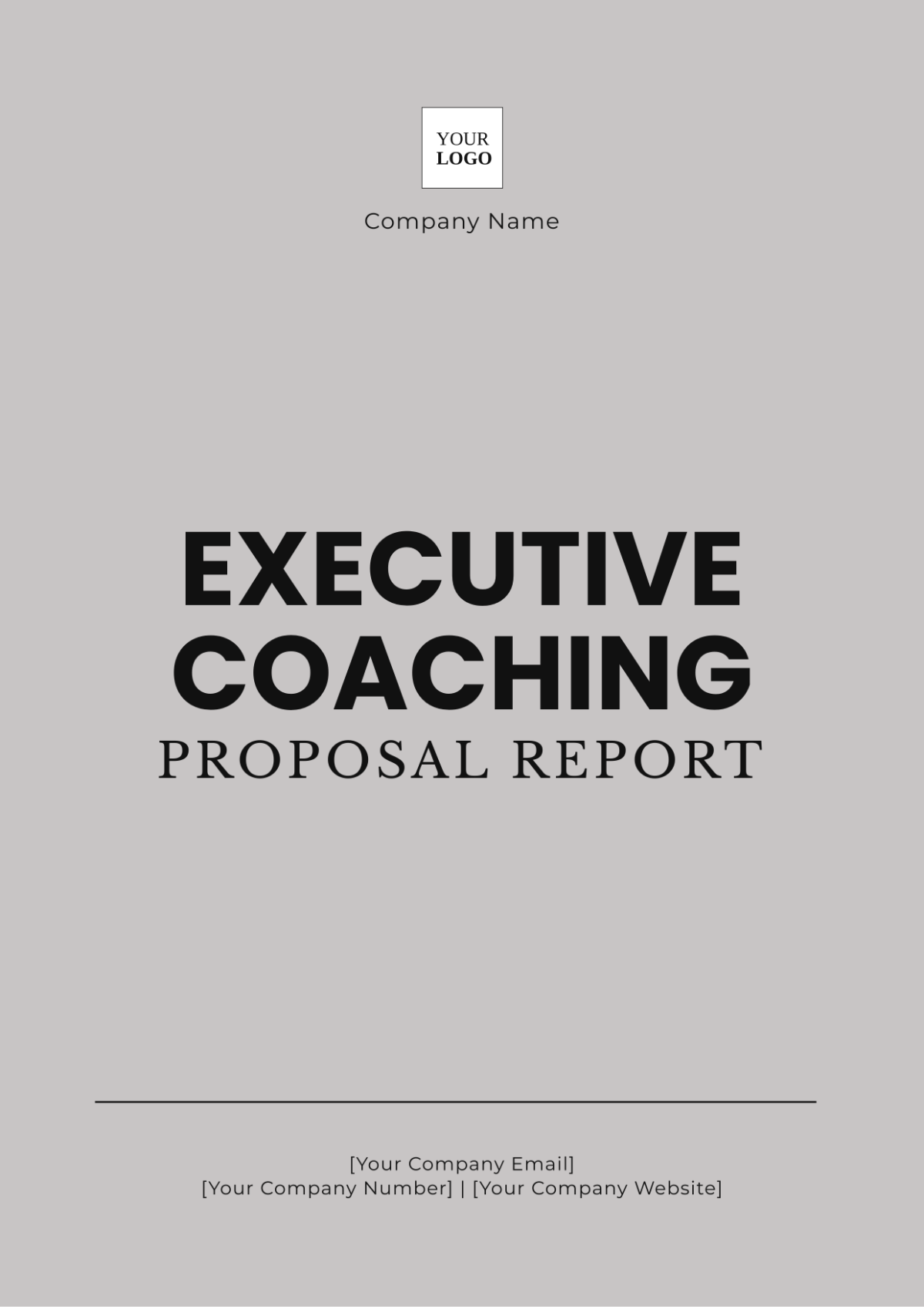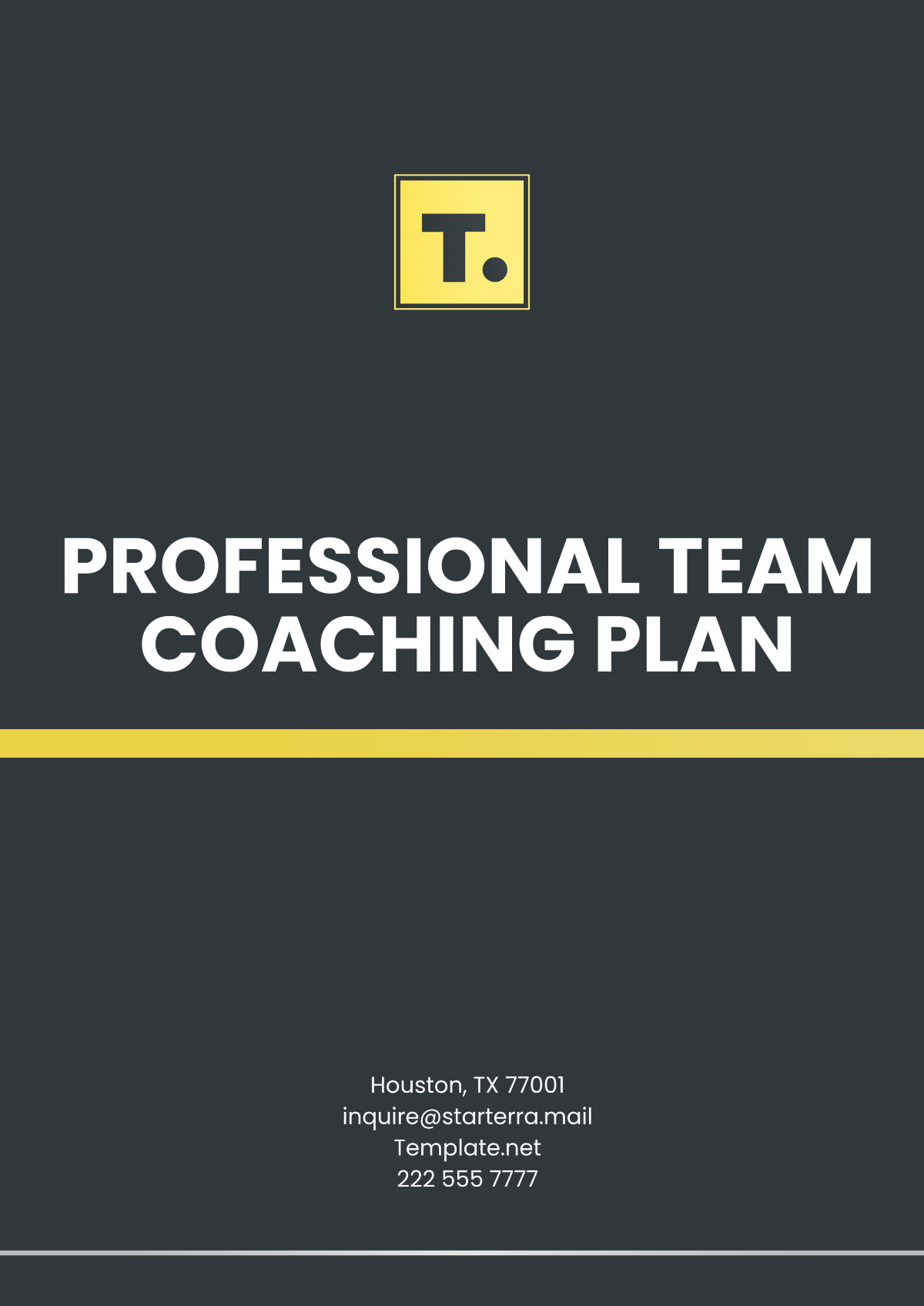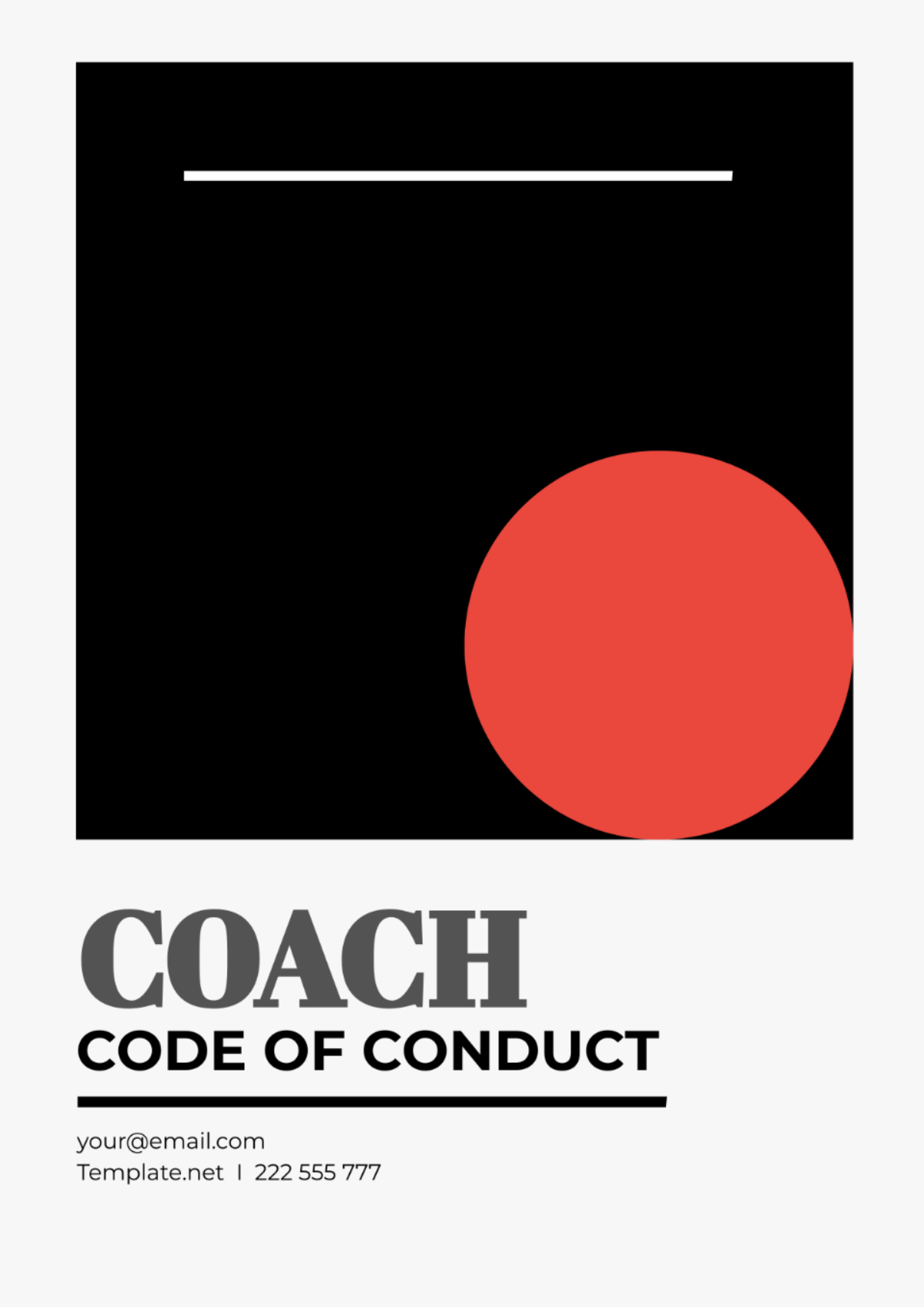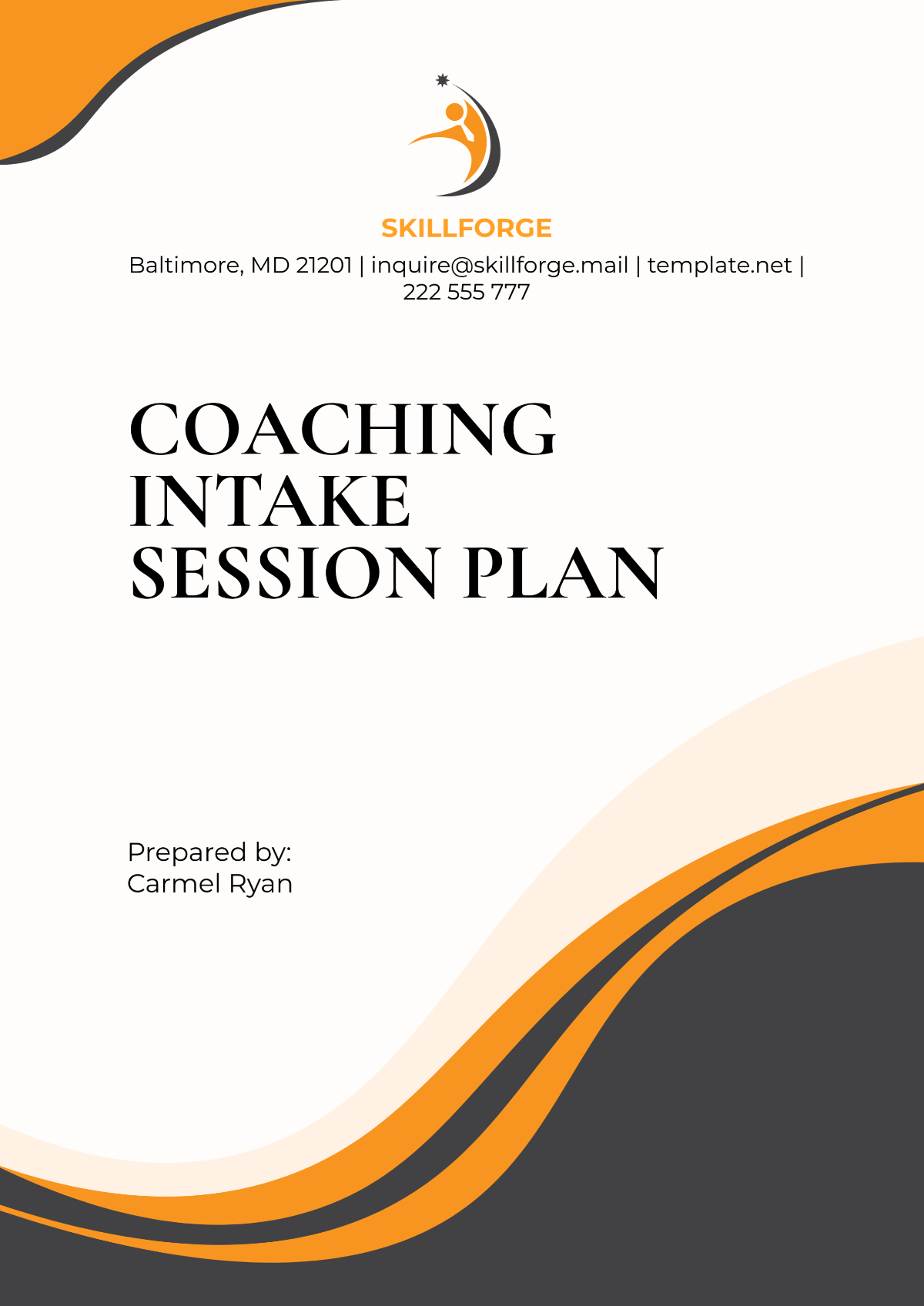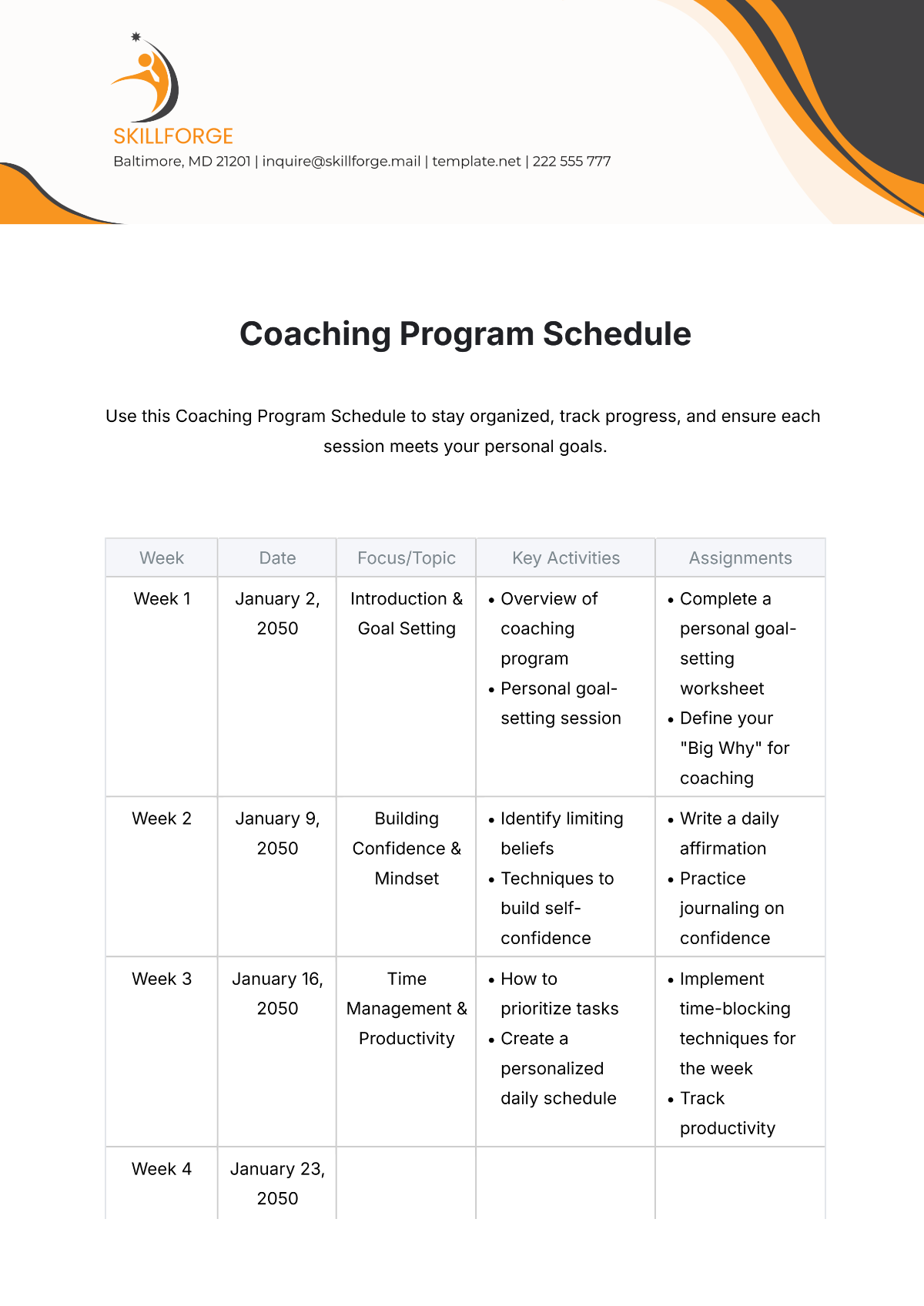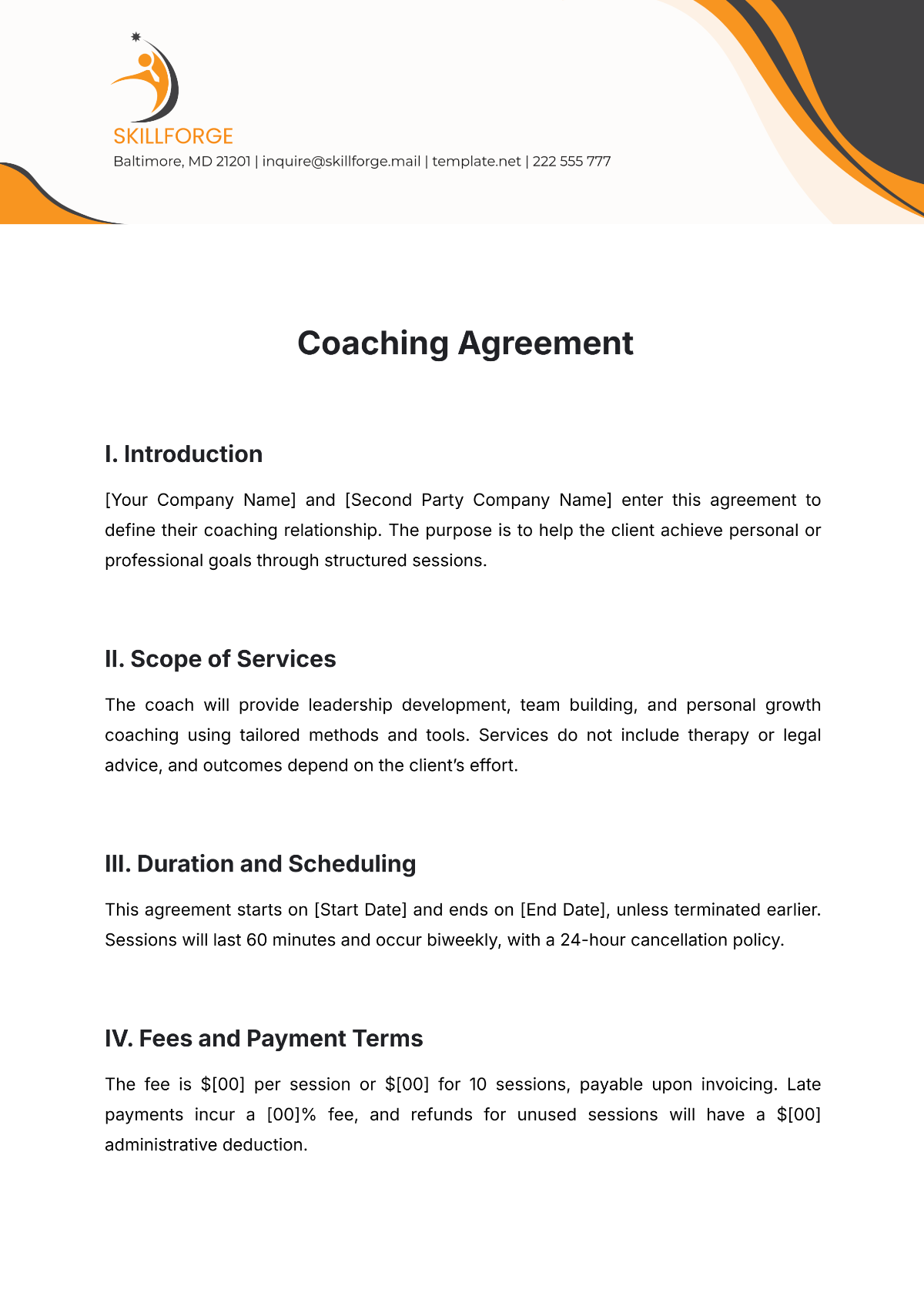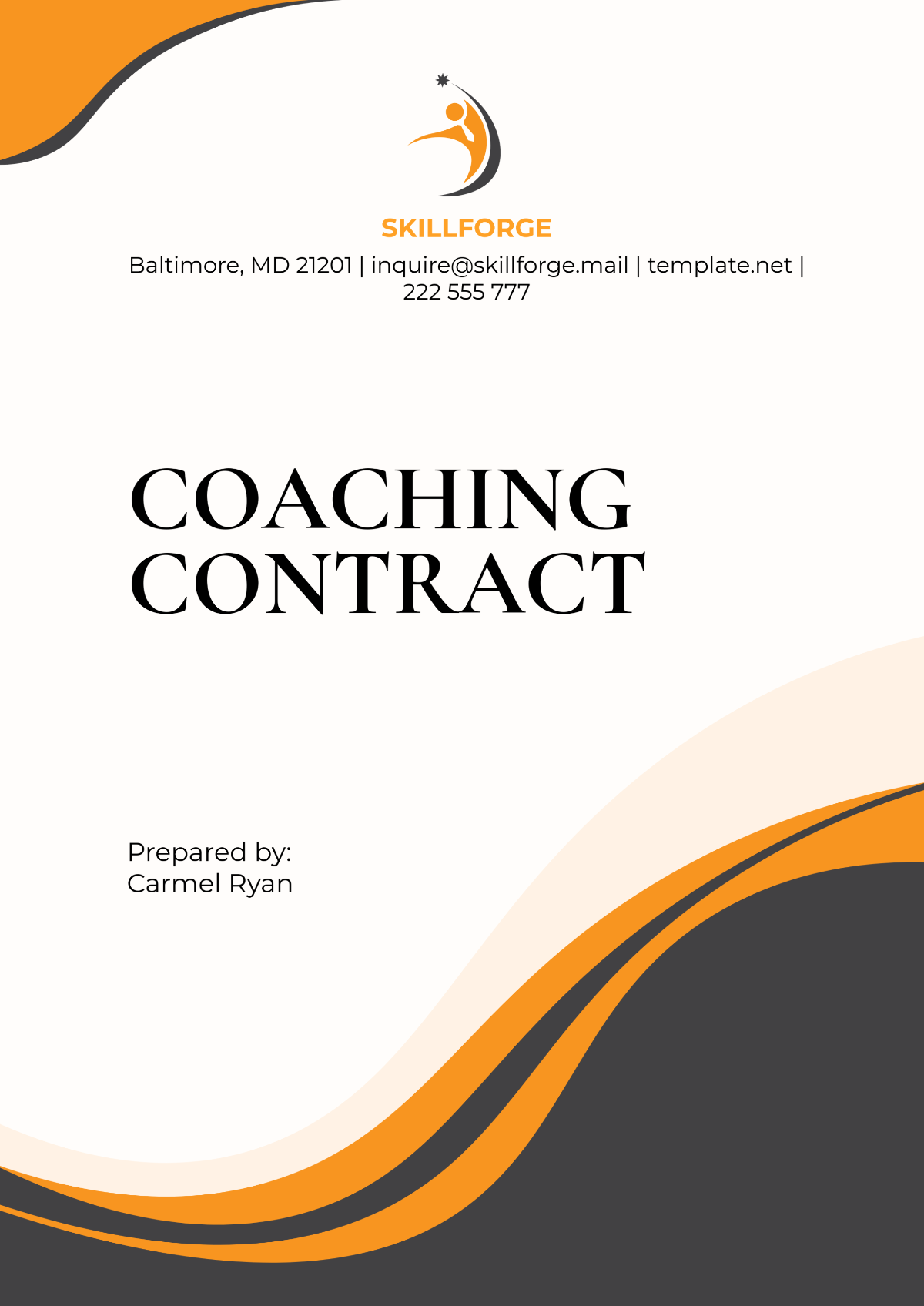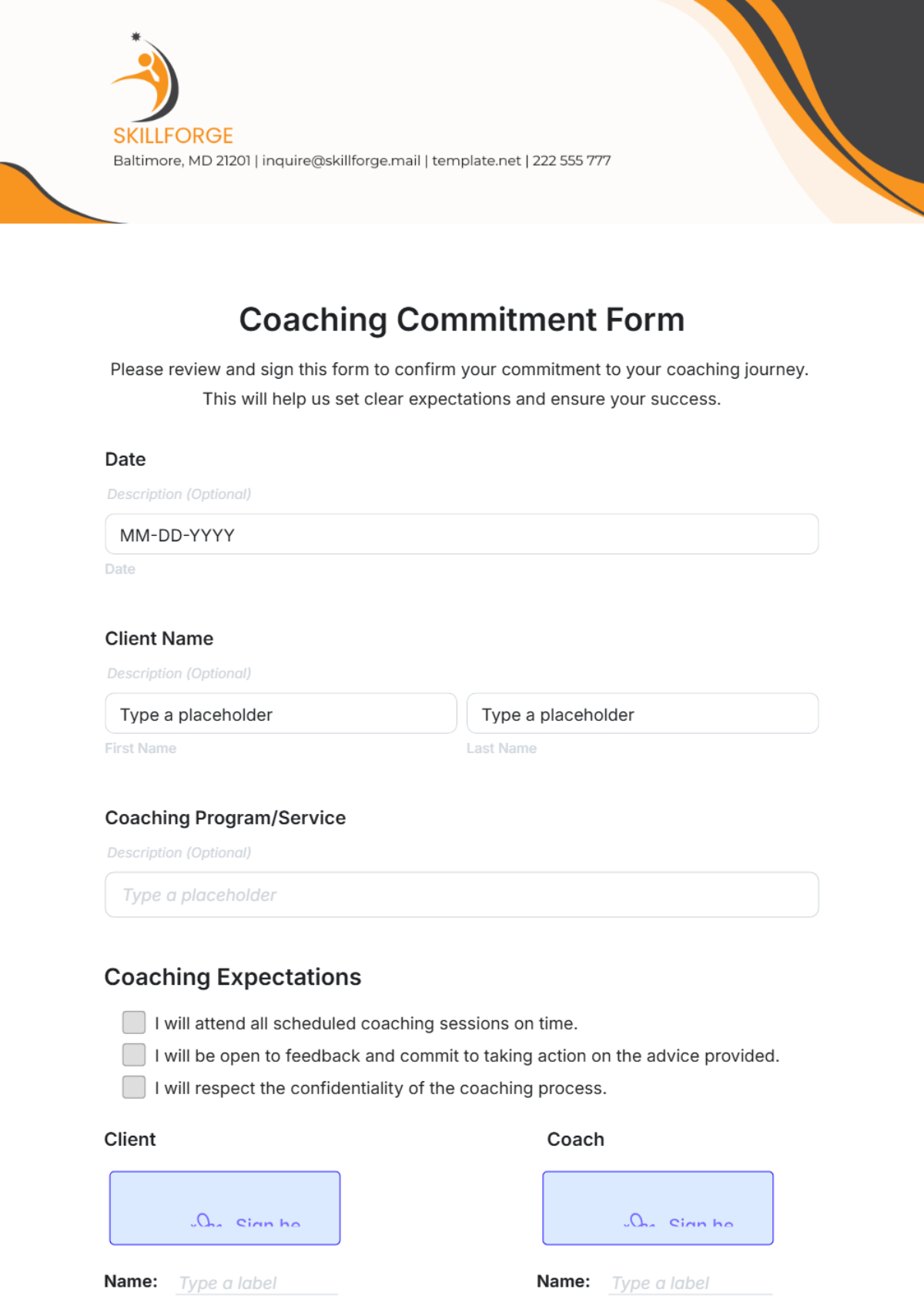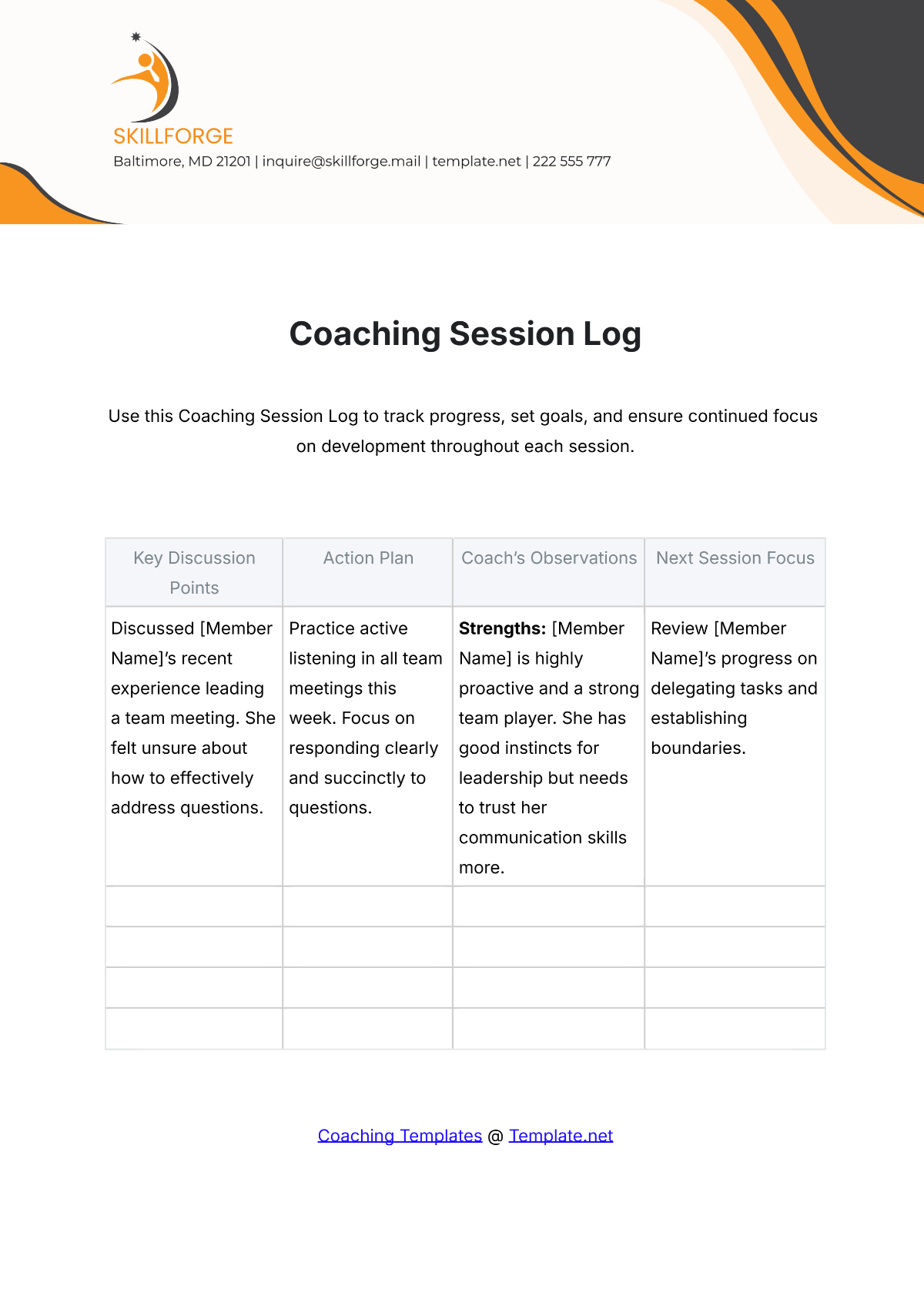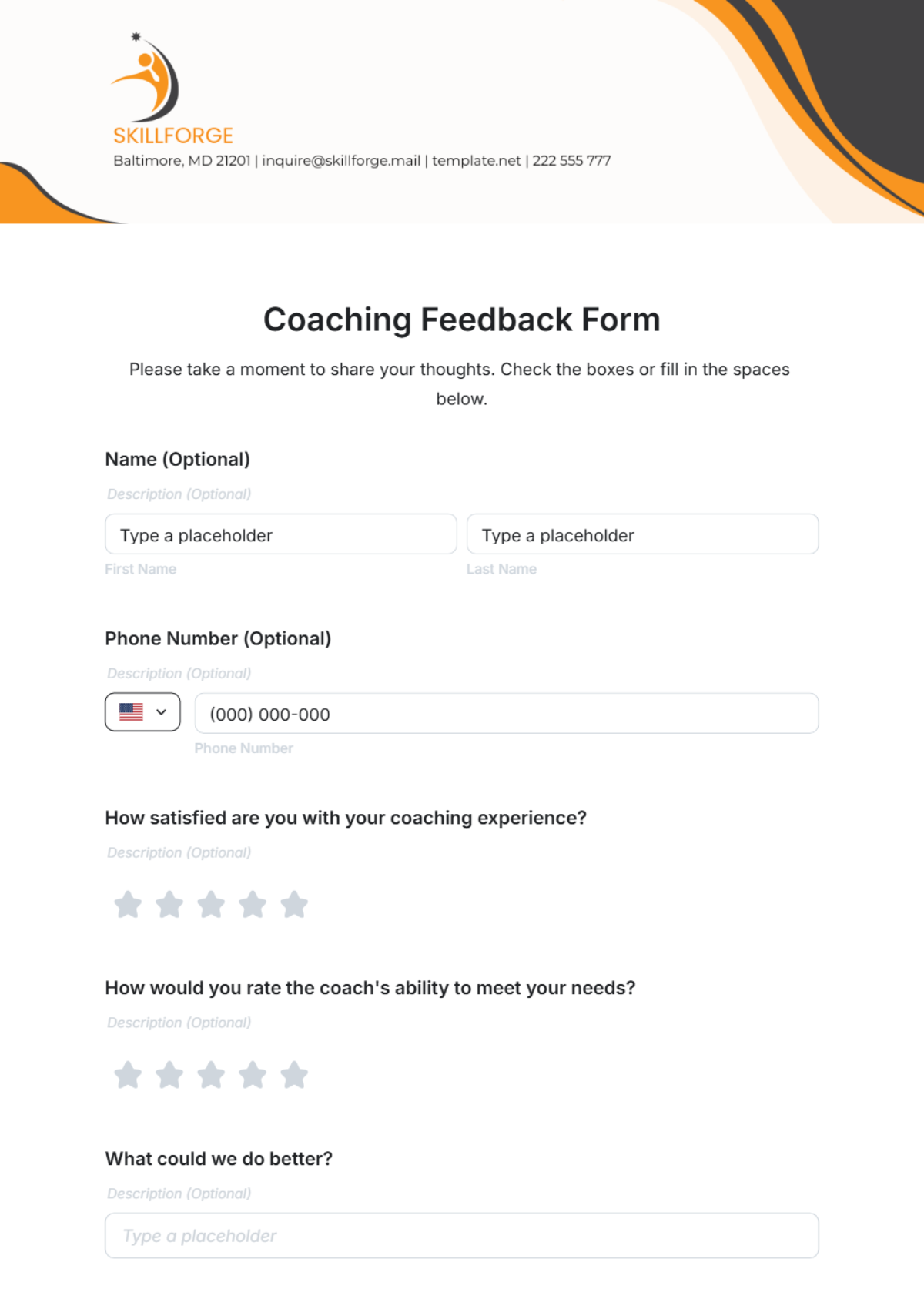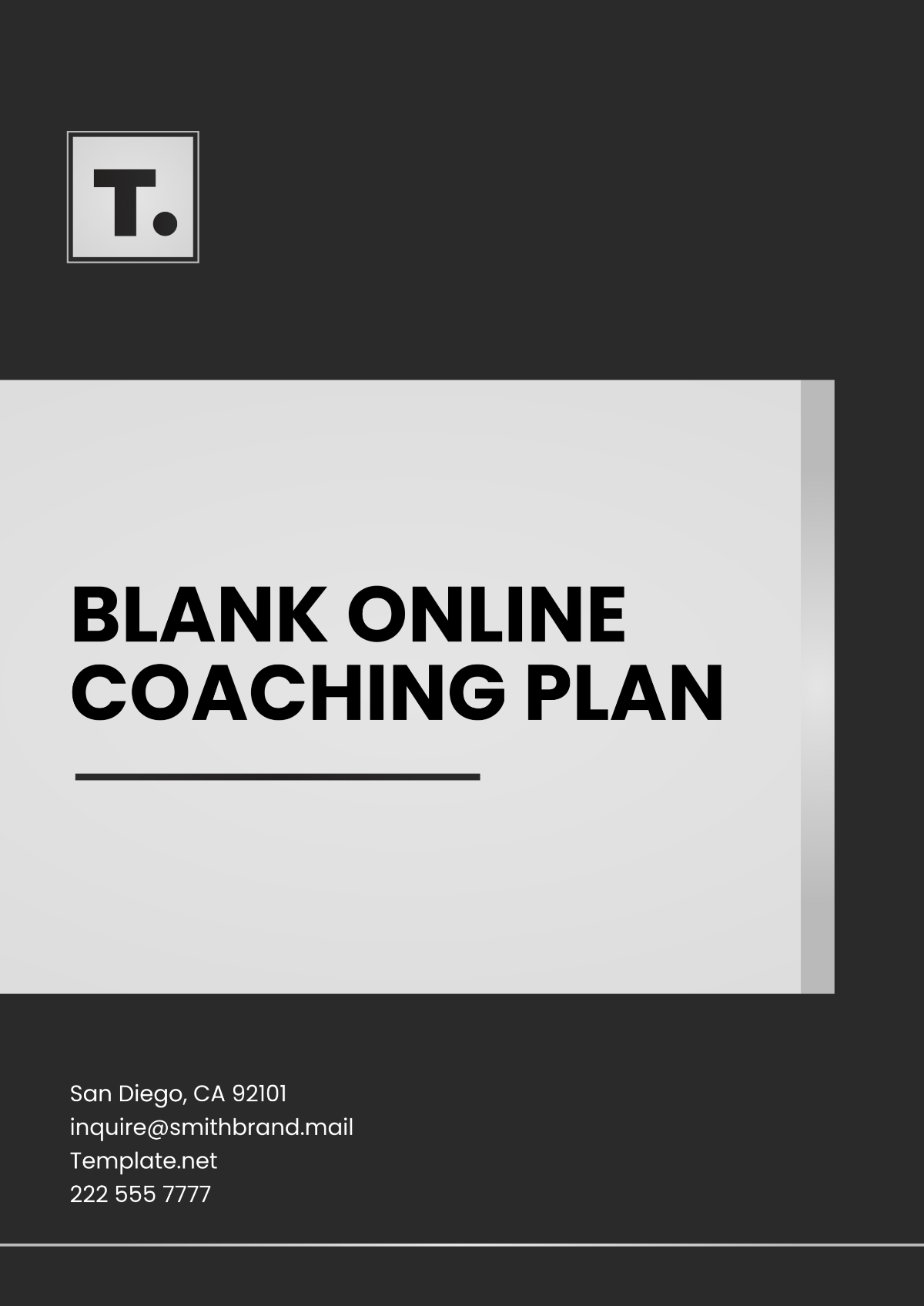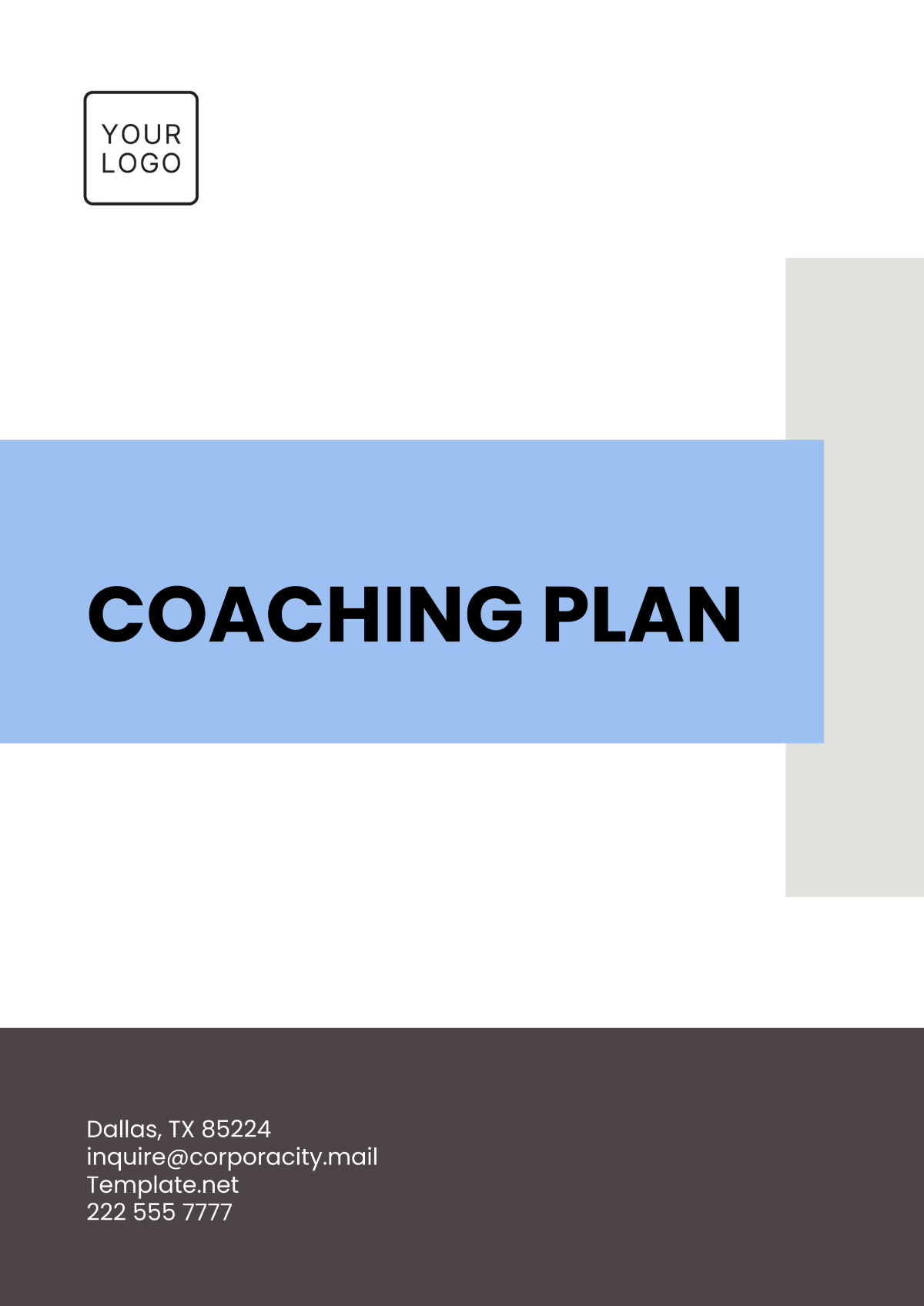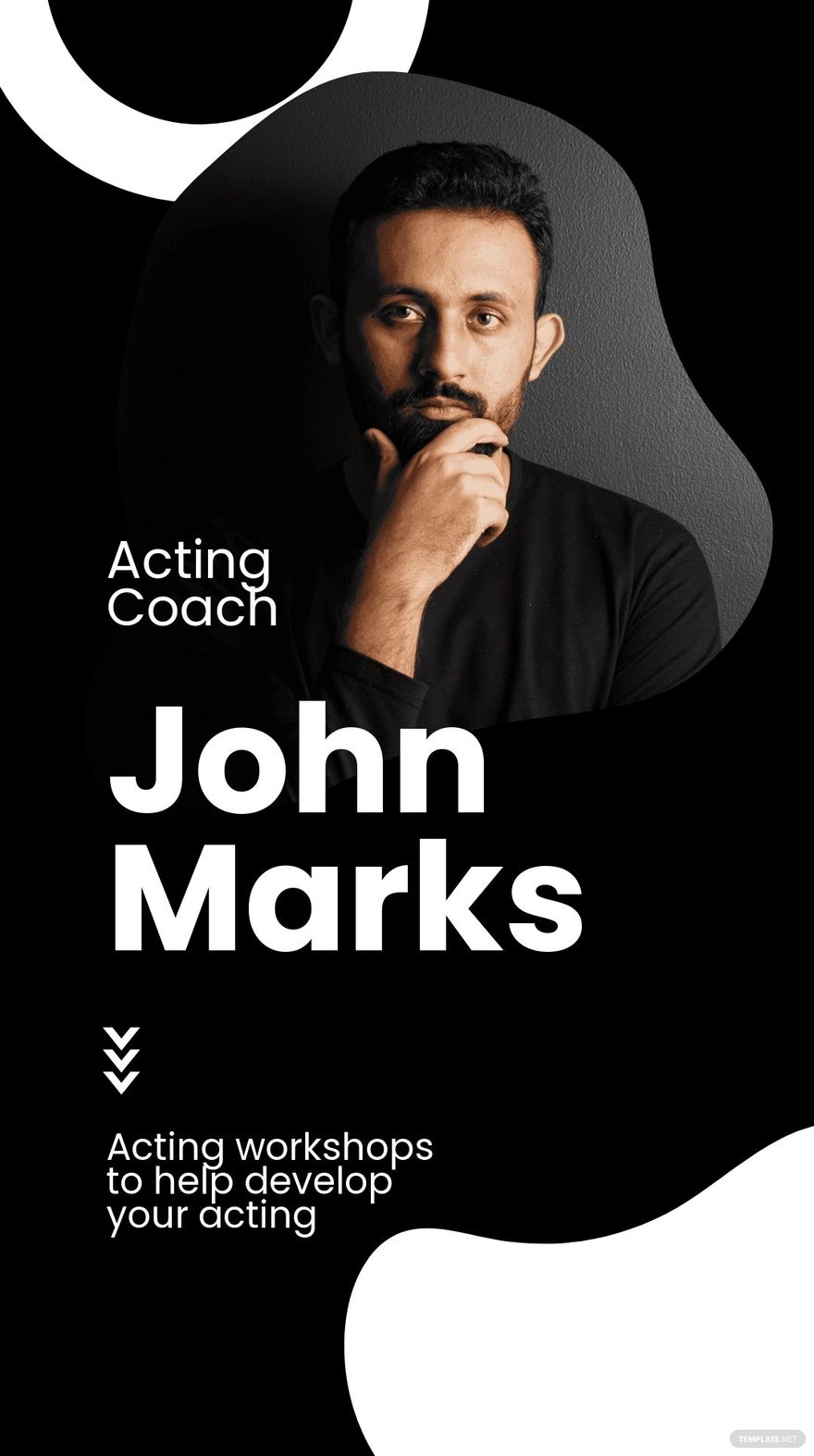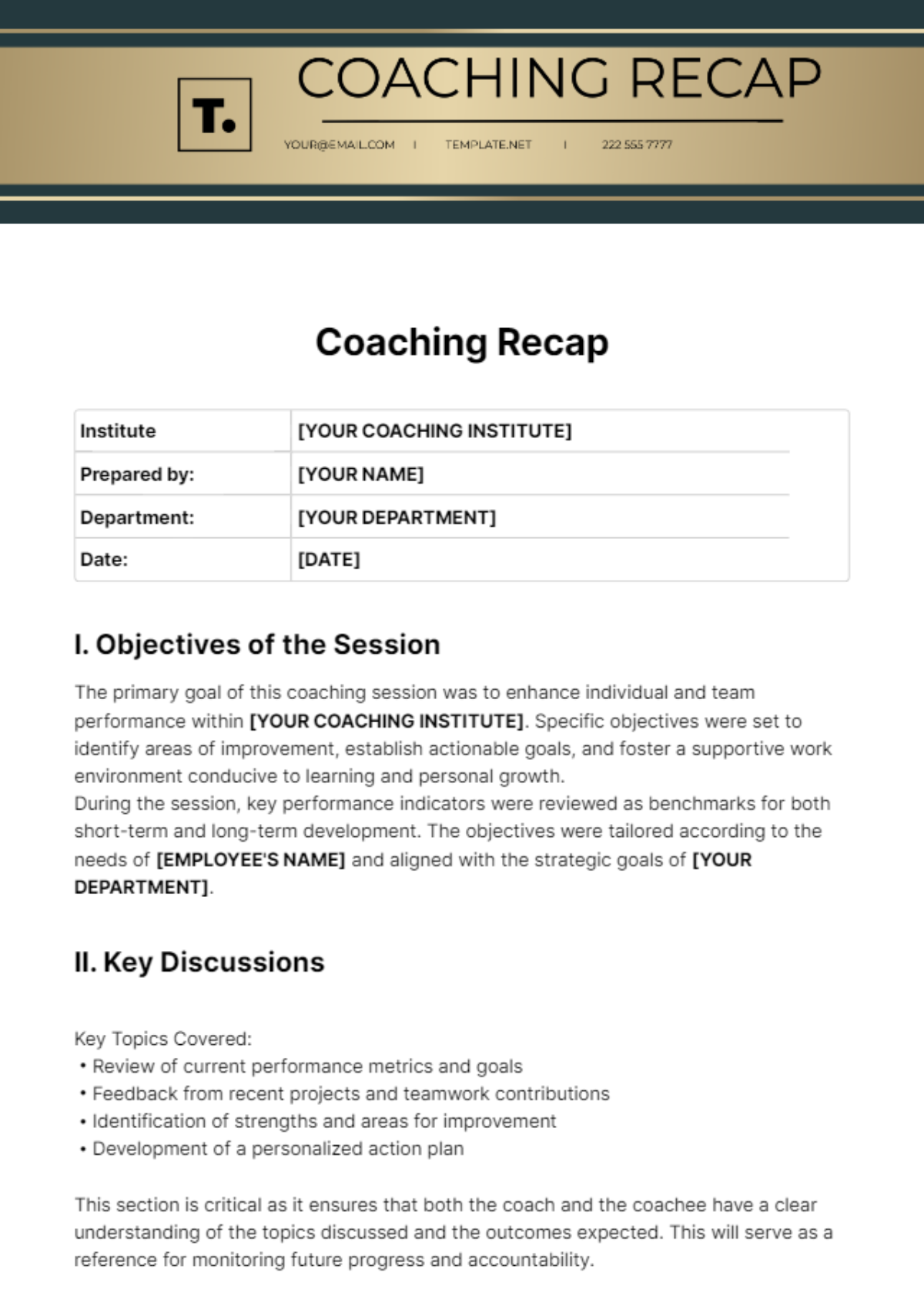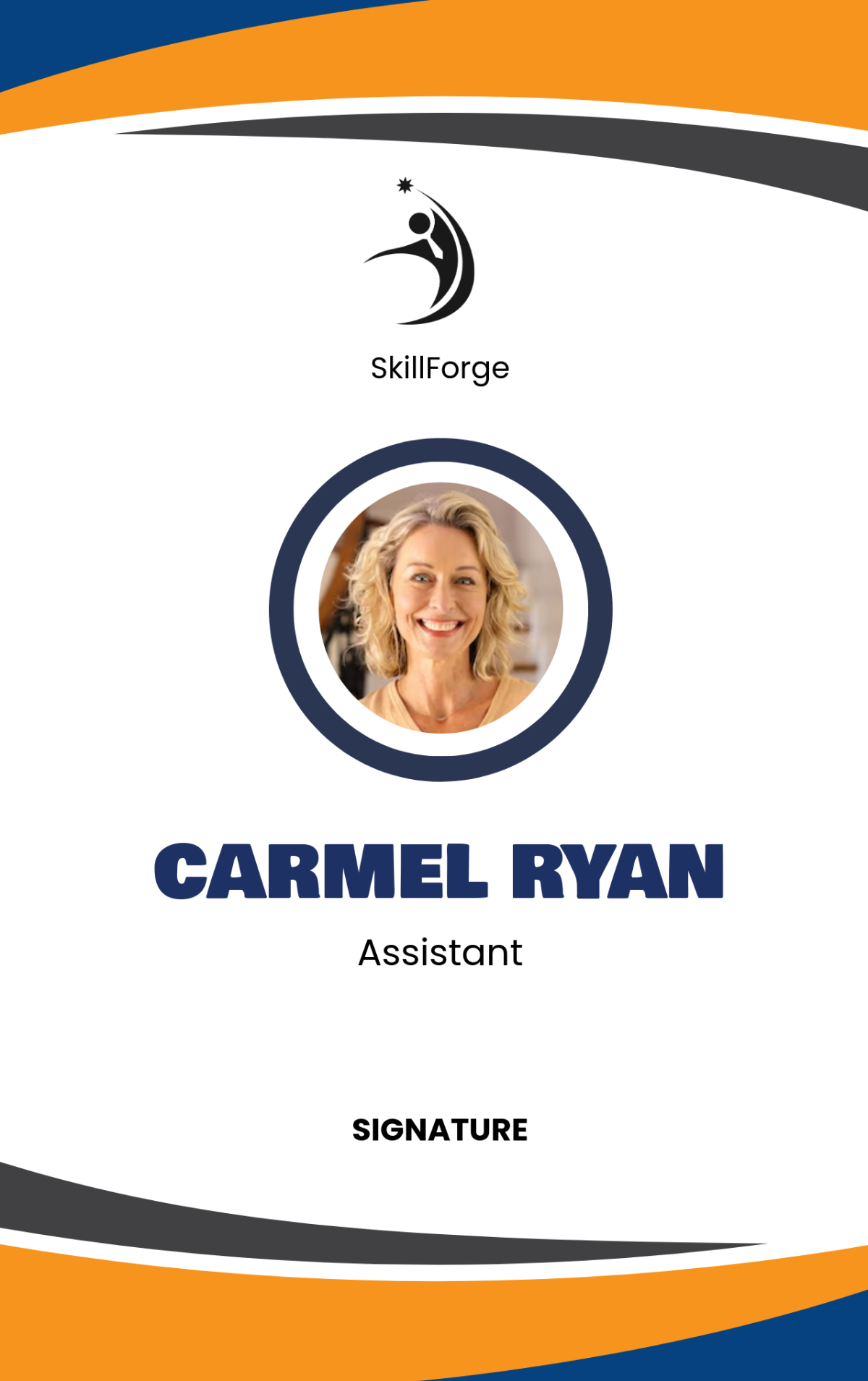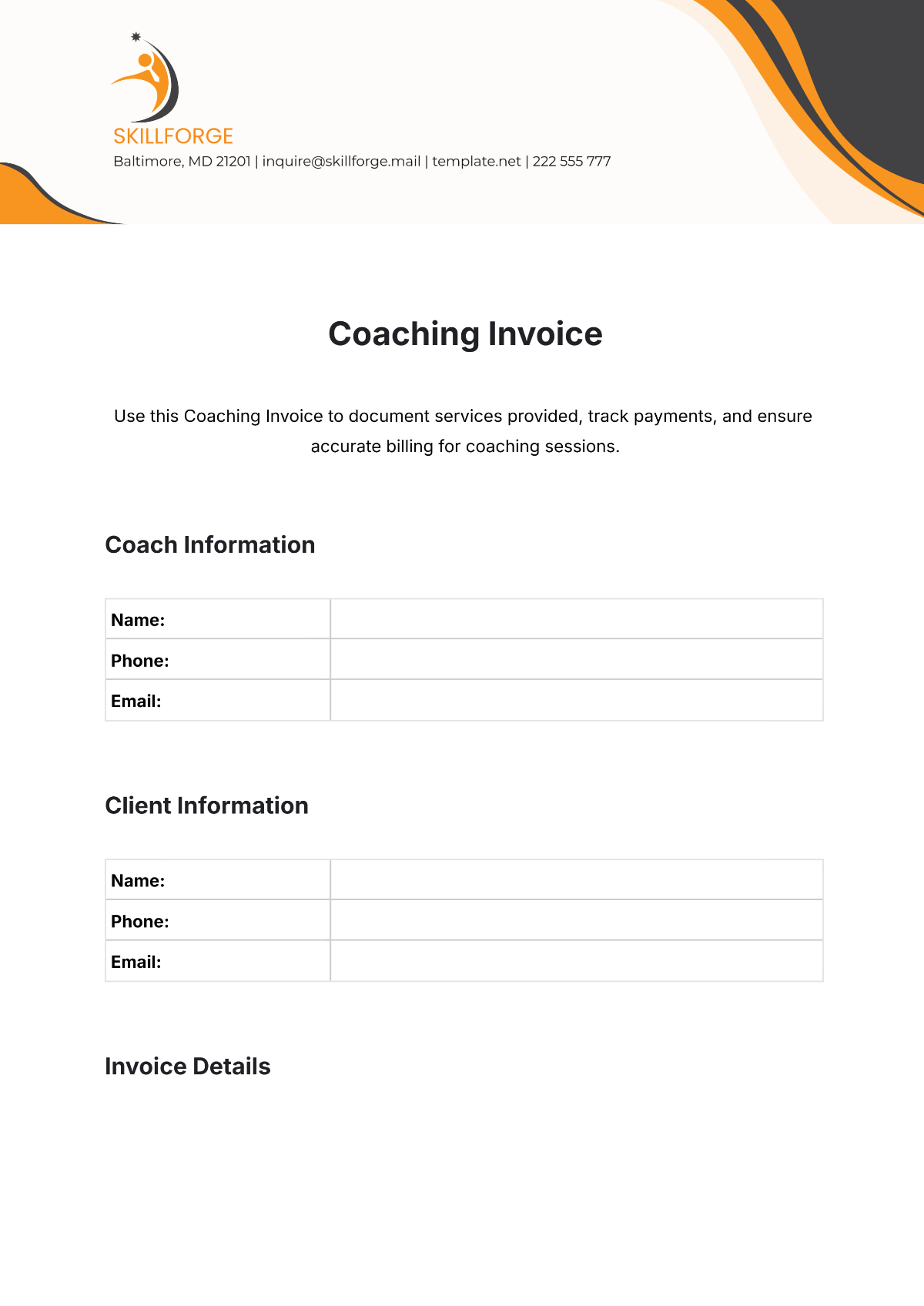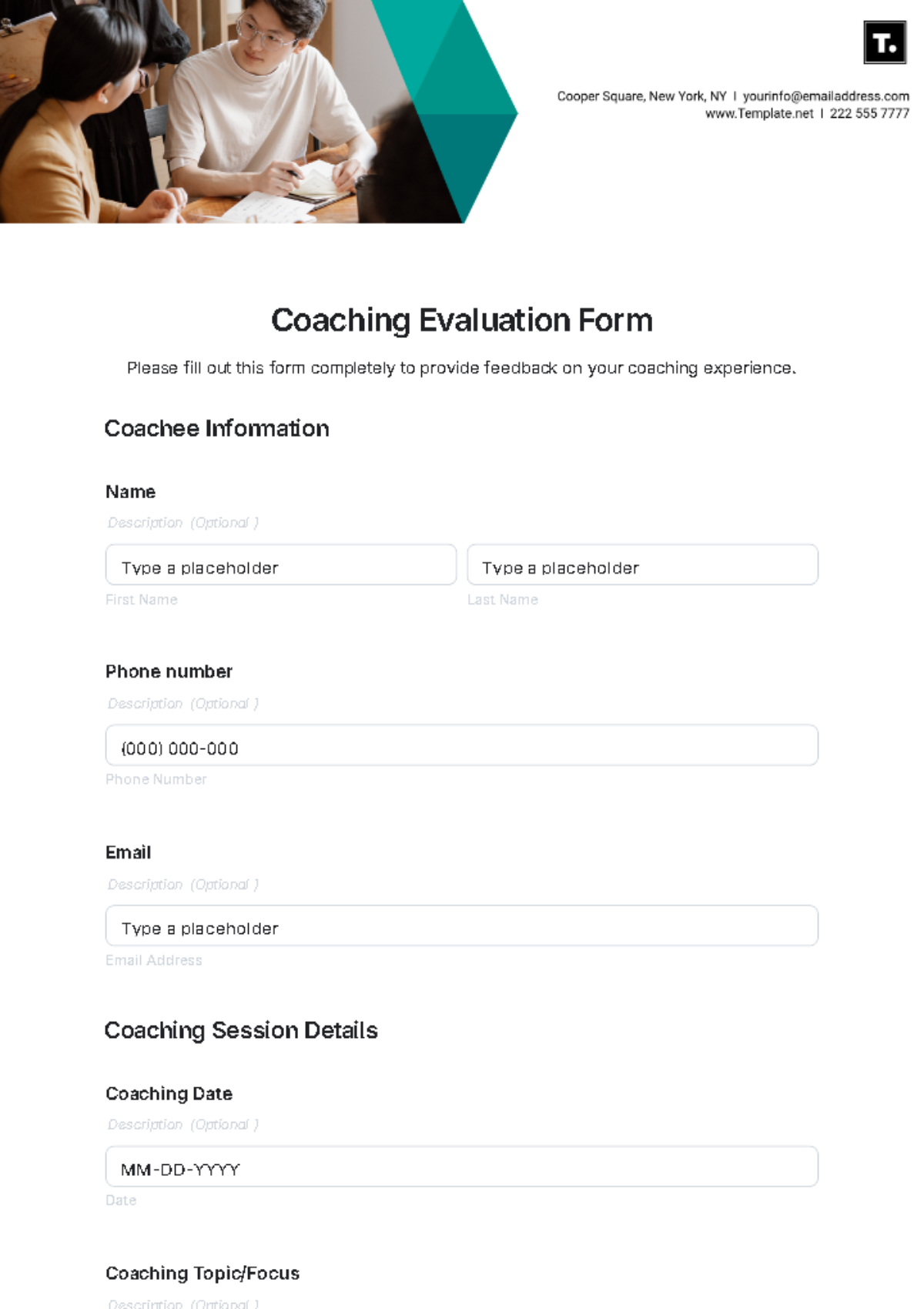Coach Code of Conduct
I. Introduction
As representatives of [Your Company Name], coaches play a pivotal role in shaping the experiences and development of athletes, clients, and the broader community. This Coach Code of Conduct establishes the ethical standards and expectations for coaches, ensuring the highest level of professionalism, integrity, and respect in all interactions. Coaches are expected to adhere to the principles outlined herein, upholding the values of [Your Company Name] and fostering a positive and inclusive environment for all.
II. Ethical Standards and Professionalism
A. Integrity and Honesty
Coaches must demonstrate honesty and integrity in all aspects of their coaching practice, including their communications, representations, and actions.
[Your Company Name] expects coaches to avoid conflicts of interest and act in the best interests of athletes or clients at all times, prioritizing their well-being and development.
Misrepresentation or dishonesty in any form, including falsifying credentials or providing inaccurate information, is strictly prohibited.
B. Respect and Diversity
Coaches must treat all individuals with respect and dignity, regardless of their race, ethnicity, gender, sexual orientation, age, ability, or other characteristics.
Discrimination, harassment, or bullying of any kind is unacceptable and will not be tolerated within [Your Company Name]'s coaching community.
Coaches are encouraged to foster an inclusive environment that celebrates diversity and promotes understanding and acceptance among athletes, clients, colleagues, and the community.
C. Confidentiality and Privacy
Coaches must respect the confidentiality and privacy of athletes or clients, maintaining the confidentiality of personal information and sensitive data shared in the course of coaching relationships.
Disclosure of confidential information without consent is prohibited, except in cases where disclosure is required by law or necessary to protect the safety and well-being of individuals.
Coaches should establish clear boundaries regarding the use and disclosure of confidential information, seeking consent from athletes or clients before sharing information with third parties.
III. Responsibilities and Conduct
A. Professional Development
Coaches are committed to ongoing professional development and growth, continuously striving to enhance their knowledge, skills, and competencies in coaching practice.
[Your Company Name] encourages coaches to pursue opportunities for training, education, and professional certification, staying informed about best practices, industry trends, and developments in their respective fields.
Coaches should actively seek feedback and engage in reflective practice, identifying areas for improvement and taking proactive steps to address any deficiencies in their coaching practice.
B. Duty of Care
Coaches have a duty of care to safeguard the health, safety, and well-being of athletes or clients under their supervision, taking reasonable precautions to prevent injury and mitigate risks.
[Your Company Name] expects coaches to adhere to all relevant safety guidelines, regulations, and protocols, ensuring that coaching environments are safe, supportive, and conducive to learning and growth.
Coaches should be prepared to respond effectively to emergencies or crises, prioritizing the welfare of athletes or clients and taking appropriate action to address any health or safety concerns.
C. Professional Boundaries
Coaches must maintain appropriate professional boundaries in their relationships with athletes, clients, colleagues, and other individuals, avoiding any behavior that could be perceived as exploitative, inappropriate, or unethical.
[Your Company Name] prohibits coaches from engaging in any form of sexual, romantic, or intimate relationship with athletes or clients under their care, as such relationships can undermine trust, create conflicts of interest, and have serious ethical implications.
Coaches should establish clear boundaries regarding physical contact, social media interactions, and other forms of communication, ensuring that their interactions with athletes or clients are professional, respectful, and appropriate at all times.
IV. Compliance and Enforcement
A. Reporting and Investigation
Coaches have a responsibility to report any violations of this Code of Conduct or concerns regarding the behavior of fellow coaches, athletes, or individuals within [Your Company Name]'s coaching community.
Reports of misconduct or breaches of conduct will be promptly and thoroughly investigated by [Your Company Name]'s designated authorities, who will take appropriate action based on the findings of the investigation.
Coaches who fail to comply with this Code of Conduct may be subject to disciplinary measures, including but not limited to warnings, sanctions, suspension, or termination, depending on the severity of the violation and its impact on athletes, clients, or the reputation of [Your Company Name].
B. Confidentiality and Whistleblower Protection
[Your Company Name] is committed to protecting the confidentiality of individuals who report misconduct or participate in investigations, ensuring that their identities and information are kept confidential to the extent permitted by law.
Coaches who report violations of this Code of Conduct in good faith will be protected from retaliation or adverse consequences, as [Your Company Name] prohibits retaliation against individuals who raise concerns or report misconduct by its policies and procedures.
Coaches should familiarize themselves with [Your Company Name]'s policies and procedures for reporting misconduct and seek guidance from designated authorities if they have any questions or concerns about their obligations under this Code of Conduct.
V. Conclusion
This Coach Code of Conduct serves as a guiding framework for coaches within [Your Company Name], reflecting our collective commitment to excellence, integrity, and accountability in coaching practice. By upholding the principles and standards outlined herein, coaches play a vital role in fostering a culture of respect, professionalism, and ethical conduct, contributing to the success and well-being of athletes, clients, and the broader community.

